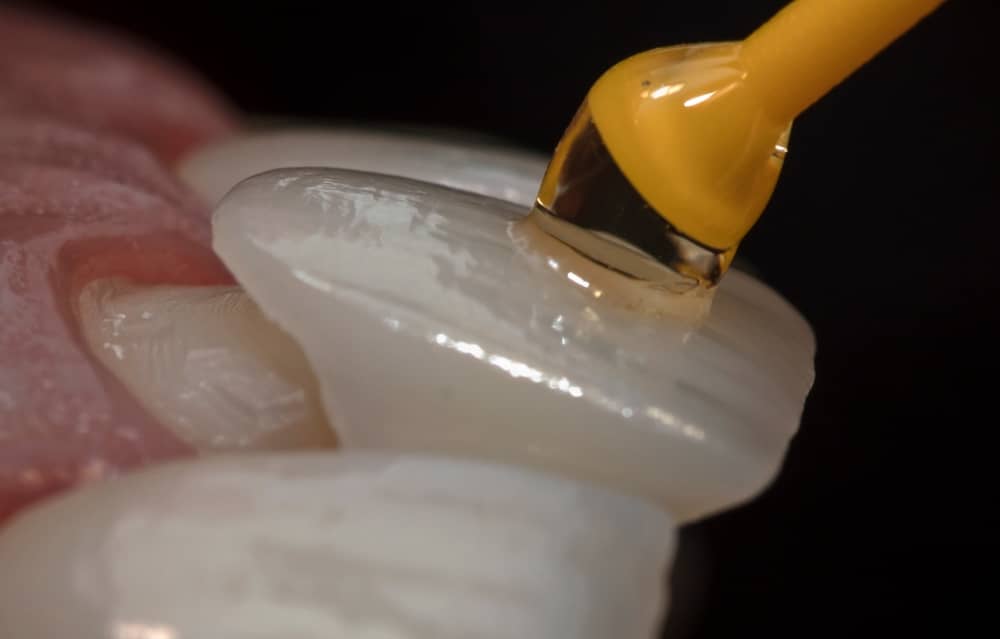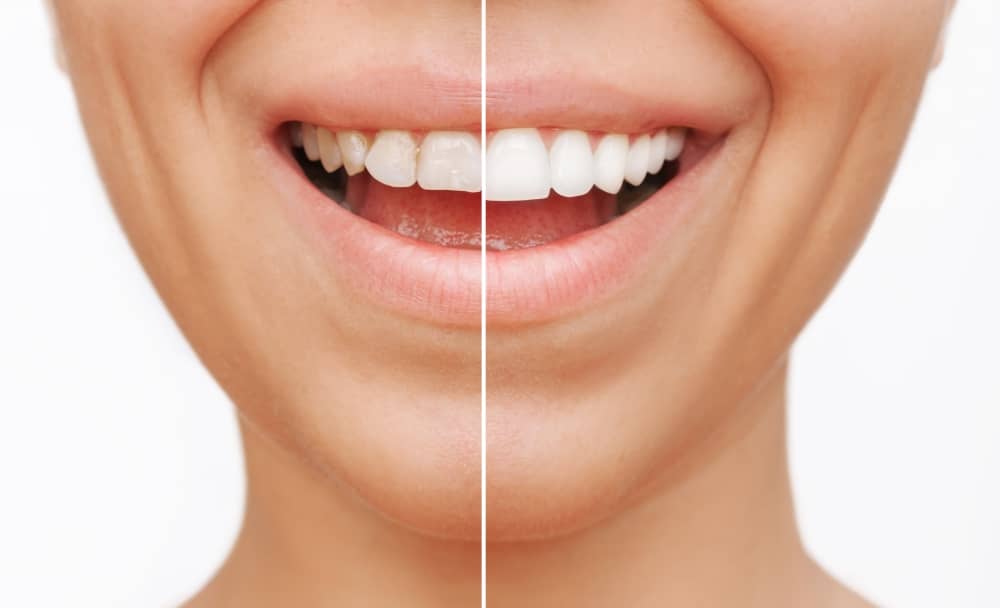If you’ve considered getting veneers to address damaged, uneven, discoloured, or misshapen teeth, you’ve probably wondered how to choose between porcelain veneers vs composite veneers.
In this article, I’ll explain the key differences between porcelain and composite veneers, their pros and cons, how to choose between porcelain and composite veneers, and how to care for veneers.
Key Takeaways:
- Veneers are a popular cosmetic dental treatment that can successfully address gaps, damage, discolouration, imperfections, and crowd-in.
- There are two main types of veneers: porcelain veneers and composite veneers.
- Porcelain veneers are long-lasting, durable, and excellent at mimicking the appearance of natural teeth.
- Composite veneers are the more affordable option of the two but have a shorter lifespan.
- Caring for veneers is similar to maintaining regular teeth and involves a good oral hygiene routine, regular dental visits, and care regarding teeth grinding, diet, and contact sports.
- Choosing between porcelain veneers and composite veneers requires a consultation with your dentist where your oral health, concerns, and budget, will be taken into account.
What Are Veneers?
Dental veneers are custom-made, thin shells that get bonded over the surface of teeth. The thin layer can successfully cover up discolouration or staining or address gaps, imperfections, and damage, making veneers a popular cosmetic dental treatment.
Benefits of Veneers
Benefits of veneers include:
- Mimic the appearance of natural teeth, especially porcelain veneers with their light-reflecting properties
- Feel and function like regular teeth
- Durable
- Long lifespan
- Resistant to stains
- Can correct a wide range of aesthetic concerns
- Straightforward procedure with minimal discomfort
You May Also Like: The 5 Most Common Types of Tooth Restorations

What Are the Types of Veneers?
The two main types of veneers are porcelain veneers and composite veneers. Both types of veneers are popular options for addressing gaps, staining, damage, and other aesthetic issues.
Porcelain and composite veneers have unique traits that give them pros and cons to consider. The best way to choose between porcelain veneers and composite veneers is with a consultation with your dentist, but here is a look at their pros and cons to get you started.
Differences Between Porcelain and Composite Veneers
Porcelain Veneers
Porcelain veneers are custom-made from porcelain material to adhere to the surface of your teeth. They can be used cosmetically or restoratively to address the colour, shape, and size of teeth.
Pros of porcelain veneers:
- Longer lifespan than composite veneers
- More durable than composite veneers
- More suitable for patients with significant damage or cosmetic concerns
- More resistant to discolouration and staining
- Resembles natural teeth more due to light-reflecting properties
Cons of porcelain veneers:
- Pricier than composite veneers
- More difficult and expensive to replace in the event of damage
Composite Veneers
Composite veneers are made from translucent composite resin material.
Pros of composite veneers include:
- More affordable than porcelain veneers
- May require less enamel to be removed compared to porcelain veneers
- Composite veneers are easier to replace than porcelain veneers in the vent of damage or breakage
Cons of composite veneers:
- Do not last as long as porcelain veneers
- Not as durable as porcelain veneers
How Long Do Porcelain Veneers Last?
When maintained properly, porcelain veneers are your best option for the longest lifespan. Porcelain veneers can last 10 years, or up to 15 years when well-cared for.
How Long Do Composite Veneers Last?
Composite veneers have a shorter lifespan compared to porcelain veneers. I tell my patients they can generally expect composite veneers to last around 5 years when cared for properly.
Why Are Veneers Popular?
Veneers are a popular cosmetic dental treatment due to the incredible transformation that can be achieved with a relatively straightforward procedure. You can view some of the before and after veneer results on our Veneers Perth page.
Veneers require minimal adjustment time and discomfort but can offer a long-lasting solution to a variety of concerns regarding your smile’s appearance.
Part of the reason behind veneers popularity is their ability to correct a vast range of aesthetic dental concerns, such as:
- Staining or discolouration
- Chips in teeth
- Minor damage
- Gaps or spacing issues
- Crooked teeth
- Overall appearance
- Misshapen teeth
- Worn down teeth
- Uneven teeth
- Decay
You May Also Like: 10 Habits That Can Stain Teeth

How Are Veneers Maintained?
My patients often wonder what is involved in caring for veneers. They often worry that the maintenance will be difficult to keep up with. Fortunately, taking care of veneers is similar to caring for your regular teeth.
A good oral hygiene routine and regular visits with your dentist will go a long way in maximising the lifespan of your veneers.
Along with brushing twice a day and flossing every day, here are other steps to long-term veneer care:
- Avoid abrasive toothpastes
- Do not brush aggressively or with a hard-bristled toothbrush
- Be careful when flossing around the edge of veneers
- Do not chew on hard, non-food items (pens, pencils, fingernails, ice cubes, etc.)
- Avoid hard, sticky, or chewy foods
- Do not open packages with your teeth or use your teeth as tools
- Ask your dentist about a protective bite split if you grind your teeth at night
- Wear a custom mouthguard if you play contact sports
- If you experience an issue with your veneers, contact your dentist right away to address the problem immediately
Should I Choose Porcelain or Composite Veneers?
Both composite and porcelain veneers can give you a bright, straight smile you can’t wait to show off. However, it is important to consider which type is most suitable for your budget, aesthetic goals, and the condition of your teeth and gums.
If your budget is your most important consideration, your best option may be composite veneers. If you are interested in the longest-lasting, most durable type of veneers, I usually recommend porcelain veneers as the better choice. The best way to decide is with the help of your dentist.
Need Advice on How to Choose Between Porcelain and Composite Veneers?
Have you wished for a smile that was brighter, straighter, or healthier looking? If you have damaged, misshapen, discoloured, or chipped teeth, contact us to find out if you are a good candidate for veneers.
We can evaluate your oral health, discuss your goals, go over the pros and cons of porcelain vs composite veneers, and help you get started on your journey to the smile you’ve hoped for.





